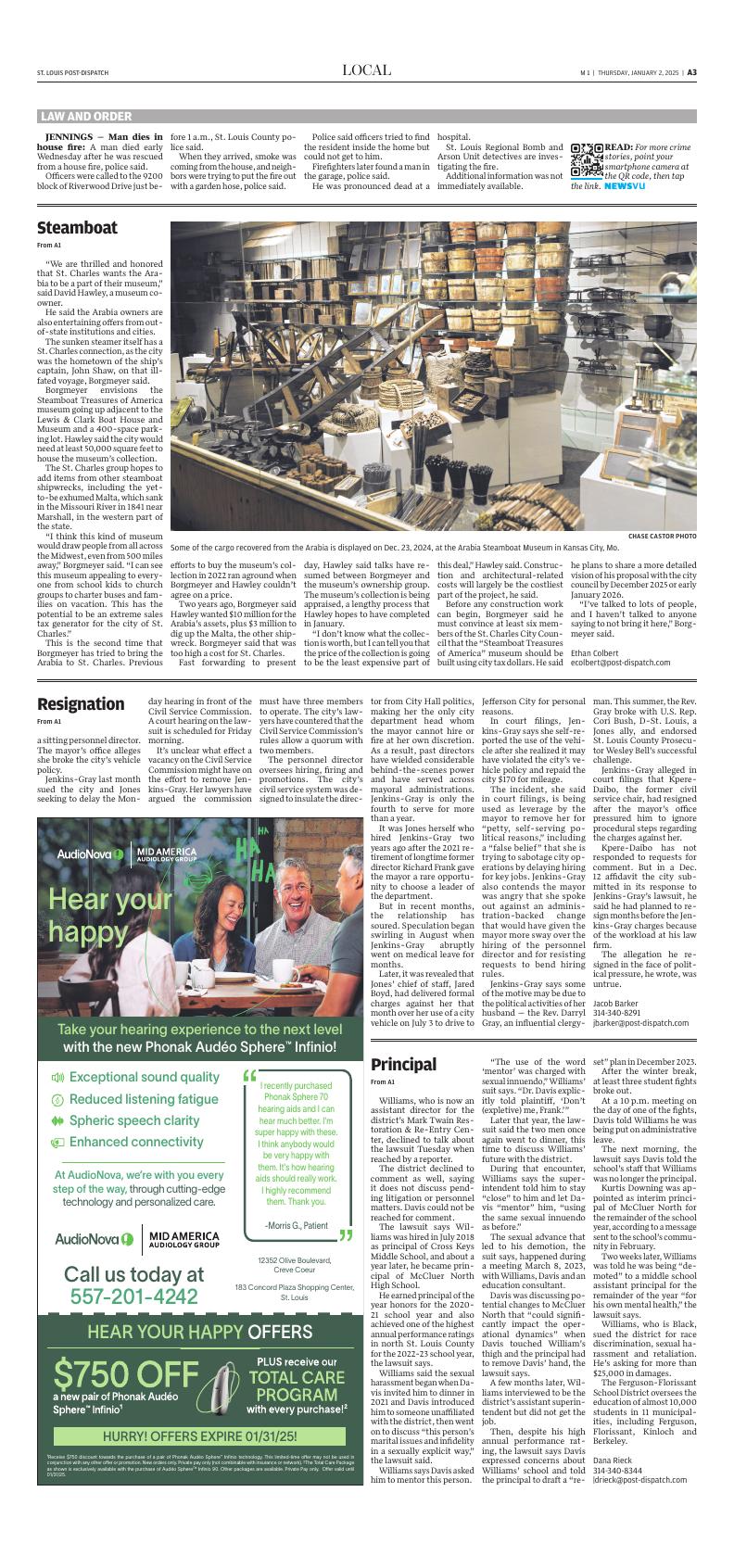Roberts: Courts under threat
WASHINGTON — Chief Justice John Roberts issued a defense this week of judicial independence, which he said is under threat from intimidation, disinformation and the prospect of public officials defying court orders.
Roberts laid out his concerns Tuesday in his annual report on the federal judiciary. It was released at the end of a year in which the nation's court system was unusually enmeshed in a closely fought presidential race, with then-Republican presidential candidate Donald Trump assailing the integrity of judges who ruled against him as he faced criminal charges for which he denied wrongdoing.
Trump won the race after a landmark Supreme Court immunity decision penned by Roberts that, along with another high court decision halting efforts to disqualify Trump from the ballot, removed obstacles to his election.
The immunity decision was criticized by Democrats including President Joe Biden, who later called for term limits and an enforceable ethics code following criticism over undisclosed trips and gifts from wealthy benefactors to some justices.
Roberts, for his part, introduced his letter by recounting a story about Britain's King George III stripping colonial judges of lifetime appointments, an order that was "not well received."
Trump is readying for a second term as president with an ambitious conservative agenda, elements of which are likely to be legally challenged and end up before the high court, whose conservative majority includes three justices Trump appointed during his first term.
Roberts and Trump clashed in 2018, when the chief justice rebuked the president for denouncing a judge who rejected his migrant asylum policy as an "Obama judge."
In 2020, Roberts criticized comments made by Senate Democratic leader Chuck Schumer of New York while the Supreme Court was considering a high-profile abortion case.
Roberts didn't mention Trump, Biden or any other specific leader in the 2024 annual report. Instead, he wrote generally that even if court decisions are unpopular or mark a defeat for a presidential administration, other branches of government must be willing to enforce them to ensure the rule of law.
He pointed to the Brown v. Board of Education decision that desegrated schools in 1954 as one that needed federal enforcement in the face of resistance from Southern governors.
"It is not in the nature of judicial work to make everyone happy," Roberts wrote.
The chief justice also decried elected officials across the political spectrum who "raised the specter of open disregard for federal court rulings."
"Attempts to intimidate judges for their rulings in cases are inappropriate and should be vigorously opposed," he wrote.
While public officials and others have the right to criticize rulings, they should also be aware that their statements can "prompt dangerous reactions by others," he noted.
Threats targeting federal judges more than tripled over the past decade, according to U.S. Marshals Service statistics. State court judges in Wisconsin and Maryland were killed at their homes in 2022 and 2023, Roberts wrote.
"Violence, intimidation, and defiance directed at judges because of their work undermine our Republic, and are wholly unacceptable," he wrote.
Roberts also pointed to disinformation about court rulings as a threat to judges' independence, saying social media can magnify distortions and even be exploited by "hostile foreign state actors" to exacerbate divisions.
Against a backdrop of those heightened divisions, Americans' confidence in the country's judicial system and courts dropped to a record low of 35%, a Gallup poll found.























































